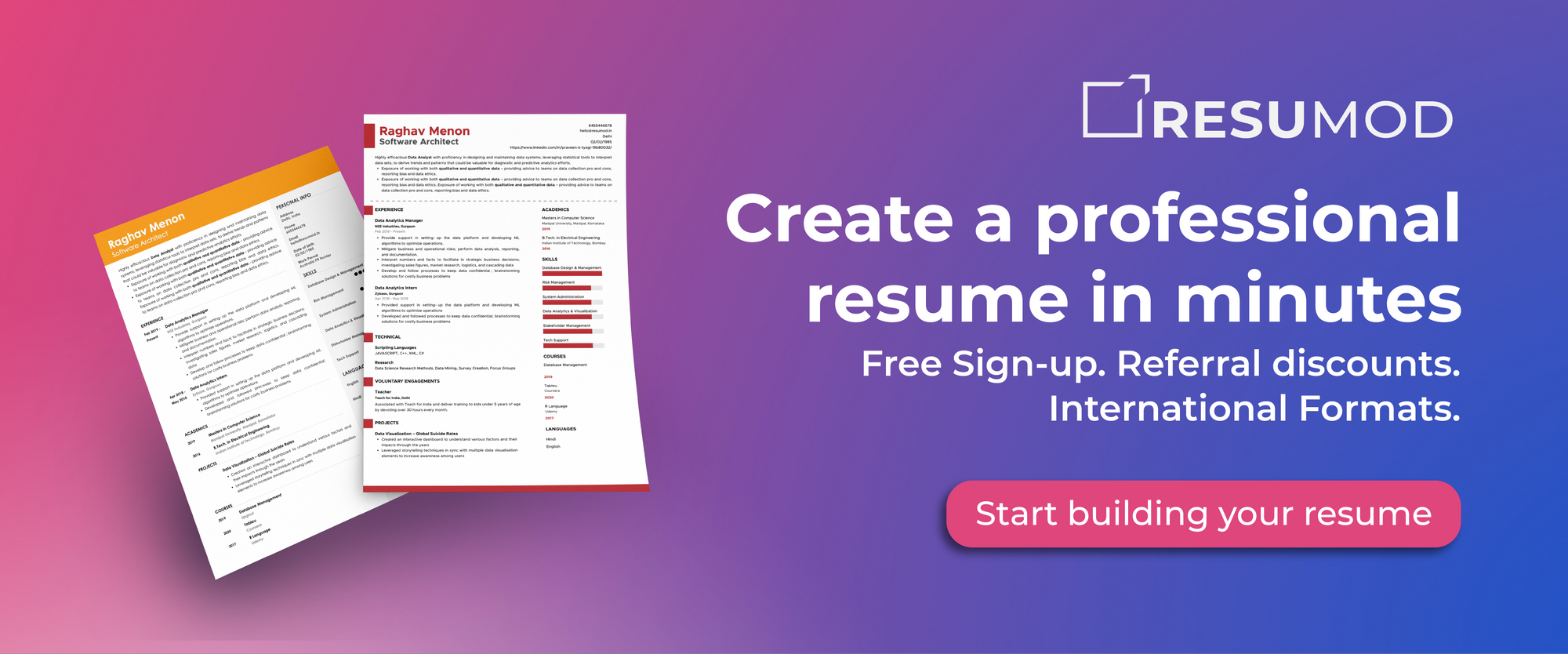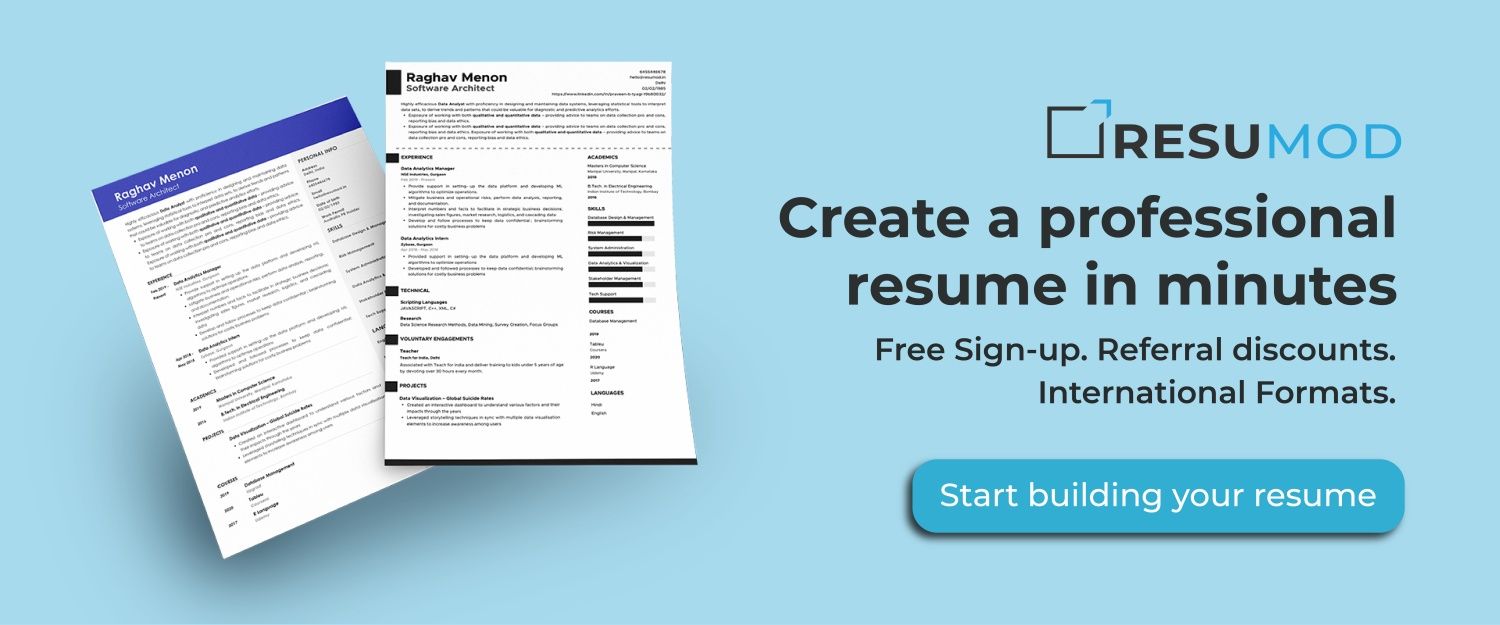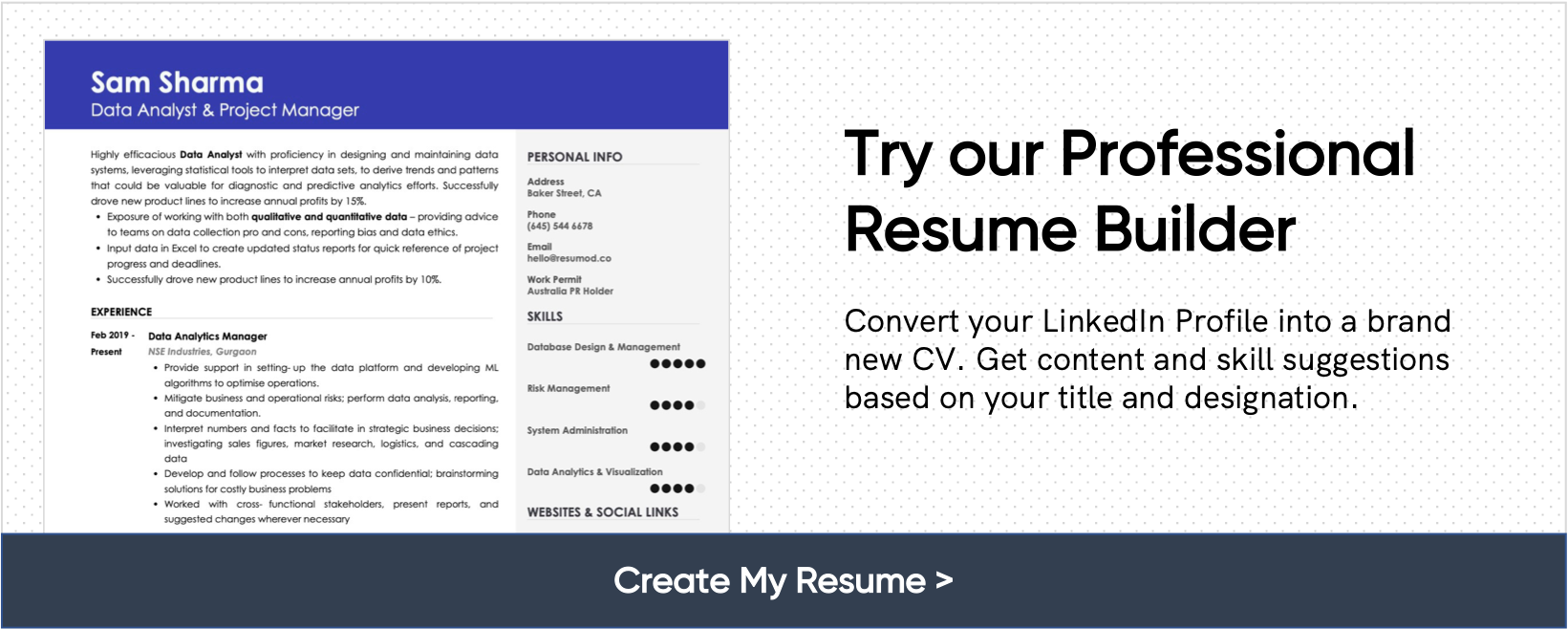How to List Education in your Resume [5 Examples]
Use your academics in summary: Your summary is the first thing that the recruiter sees after your name. If you have brag-worthy credentials or academic achievements, use them in your resume summary and give the recruiter a reason to go through the entire resume.
Education is the least talked about section while discussions on resume building. There are numerous resources on writing a summary for a job description, but there are relatively lesser on listing your education.
Nonetheless, listing your education correctly is a prerequisite for your resume. It is not as simple as just writing the name of the university and the course to pursue.
What if you have:
- Multiple degrees and don’t know what to list on the top?
- There is a gap in your education and you don’t know how to use it!
- You are running out of space and don’t know how to incorporate all your training and credentials.
Follow this post to have answers to all the above questions
In this post, you will learn:
- Why is it important for beginner workforce to list education
- Various elements of an education section
- The right way to include education in your resume
- How to place the education section
- How to make the best use of your academics
Why is it important for the beginner workforce to list education?
A properly listed education shows more than your qualification. Here are all the reasons why you need to pay attention to your academic background while you write your resume
#1 Your credentials and academic background are your lifetime assets
Education once acquired stays with you throughout your life and helps you reach various career goals. Thus it makes sense to show on your resume, the academic credential you have acquired by investing time, money, and hard work.
#2 Academics act as proof your knowledge
Let’s accept it. Education is still considered important after working for multiple years.
Recruiters will glance at your education section at least once even if you’ve been working for 2 decades.
It holds greater importance for the beginner workforce because they don’t have jobs to show learning or practical exposure.
#3 Some jobs require a particular qualification
There are very few industries or roles that you can without proper qualification or where your specification does not matter.
Jobs in journalism, pharmaceuticals, technology, and finance require certain qualifications to get you in. Even some executive management roles require an MBA or an equivalent degree in management or leadership
#4 Shows clarity of thought
Imagine doing a completely different course and getting yourself into another role without even some intermediate training and course in the field?
How will you justify your know-how?
Why will the recruiter hire you over those who are qualified in the same area?
The road is bumpy.
On the contrary, if you pursue a career in your field of study:
- Your education is proof of your knowledge
- You are committed and clear about your interest areas, that you’ve been building for years now through your education
#5 Graduation and post-graduation develop your social skills
College is the best time of our lives for most of us.
Here’s why:
We talk to new people, explore a lot, and in the process learn and grow a lot.
This process shapes us and teaches us how to deal with people. And soft skills like adjusting to new environments, and easily communicating with people across various cultures, are always in demand.
Develop these skills as much as you can while you are in college.

Various elements of an education section
Name of the University: An education section is incomplete with the name of the university you graduated from. You can also list the name of your college if it is a reputed one or the college's name can help you bag that job. Don't forget to write the name of the city.
Name of the course with specialization: Specialization becomes important as you move forward in your academic journey.
- Most graduate programs do not offer any specialization within the course, but if you do, do mention it
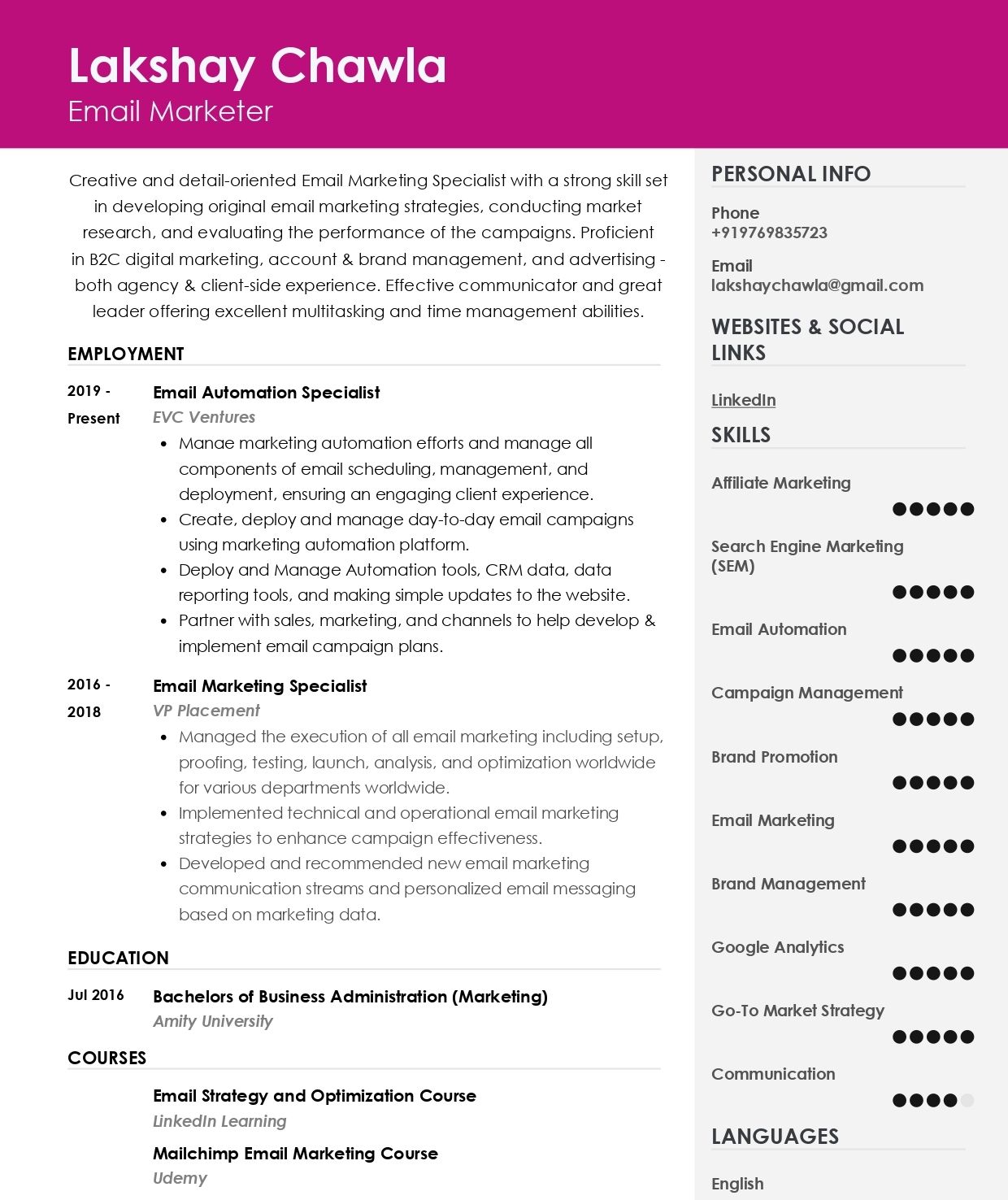
Check full resume here
- List your specialization with post-graduation or doctorate without fail. After all, you get the job for being a specialist
What should I do if I have more than one specialization?
If you have more than one, mention all of them in the academics section. Use the one required for your target job in the summary of your resume.- Grades or marks: Higher grades are considered as a mark of your excellence, and you might want to - and should - flaunt them if they are among the highest. However, this is completely optional.
- Certifications and licenses: These are extra courses you do apart from your main academics to upskill and stay relevant. Some jobs require a particular certificate or license, but even if they are not mandated by your employer, mentioning them always gives you an extra edge.
- Year of graduation: Most people skip on this. But the year of completing your degree is as important as dates of employment.
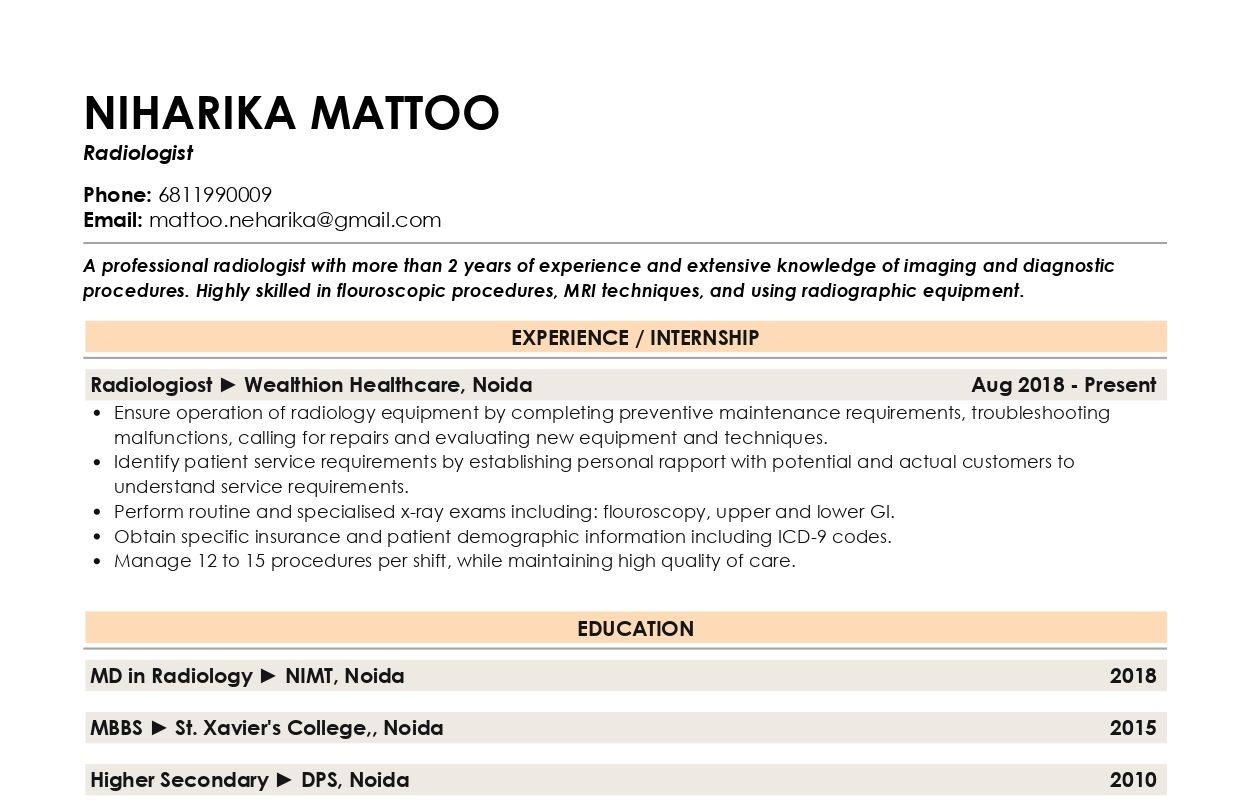
Check full resume here
Should I write the year of starting my degree/course?
No, starting year is not required, just mention the year when it ended or write "ongoing" if it is yet to be completed.- Achievements and Medals: Any kind of accomplishment, professional or academic sets you apart. Include any medals that you were conferred with or if you were mentioned in "Dean's list" here.
- Thesis/ Research: Publications: Most higher studies starting from post-graduation have research as a part of their coursework. If you are one of those who are doing or completed some research, give it some space in the education section. This is especially important for professionals who want a career in academics or research.
- Subjects: Subjects or coursework are the easiest and the quickest way to show your subject matter knowledge. Create a section titled "coursework" and put in your course details. Voila!
The right way to list education in your Resume
- Write the associated accomplishment with the degree/course: Well you must have seen a different accomplishment section on some resumes. But that is one approach and works better if you have multiple professional achievements as well. To keep the resume to the point and reader-friendly, mention your academic awards and medals with the respective academic engagement.
- Use reverse chronological order: Reverse chronological simply means listing the most recent or ongoing course first, followed by the older ones. This keeps the resume relevant.
- Mention high school details: As a first-time job seeker, you often miss this, thinking no one bothers. But no, this is a misconception. Your high school details are relevant, especially when you do not have any experience. You might have won some science or math olympiad during your high school days, and no wonder it impresses the recruiter!
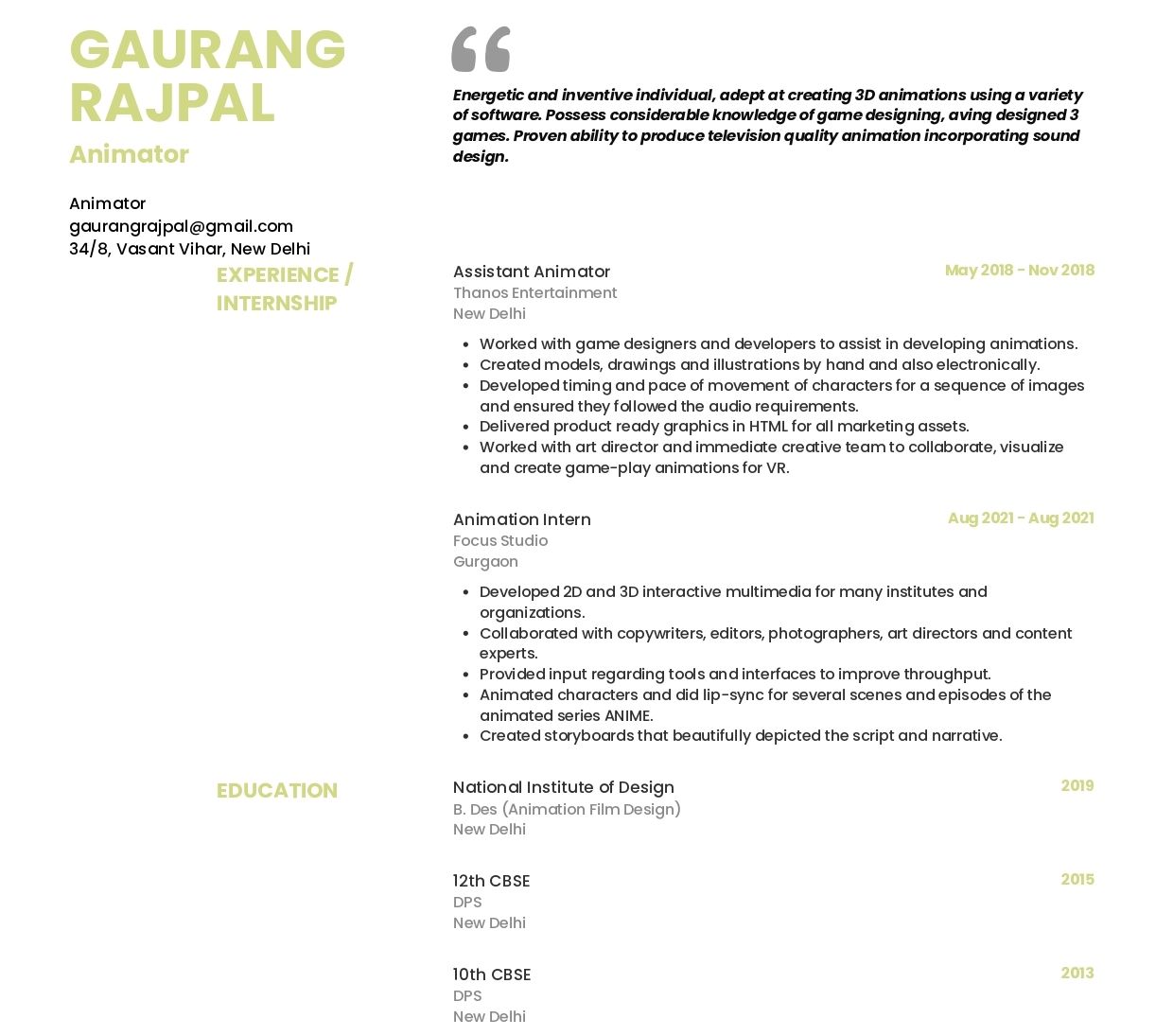
Check full Resume here
- Do not miss out on ongoing education: Some of you often end up confused about whether or not the recruiter will hire you if you are still in pursuit of any course or upskilling pursuit. Most recruiters appreciate knowledge enhancement, however, you should be able to convince the recruiter that you won't compromise on the time required to complete your job duties.
- Use a consistent format: Formatting is as important as having good keyword optimization. When you list down your education, select a formatting style and use it to make a well-put-together, easy to glance education section.
Check out resumod.co for templates with consistent and user-friendly templates.
How to place the education section
On the top
Your education should be placed within the first half of the resume if:
- You do not have any prior experience
- You have prior experience but your recent education is more relevant to the job role you seek
At the bottom
The Education section is placed at the bottom only when you have enough experience to showcase your expertise.
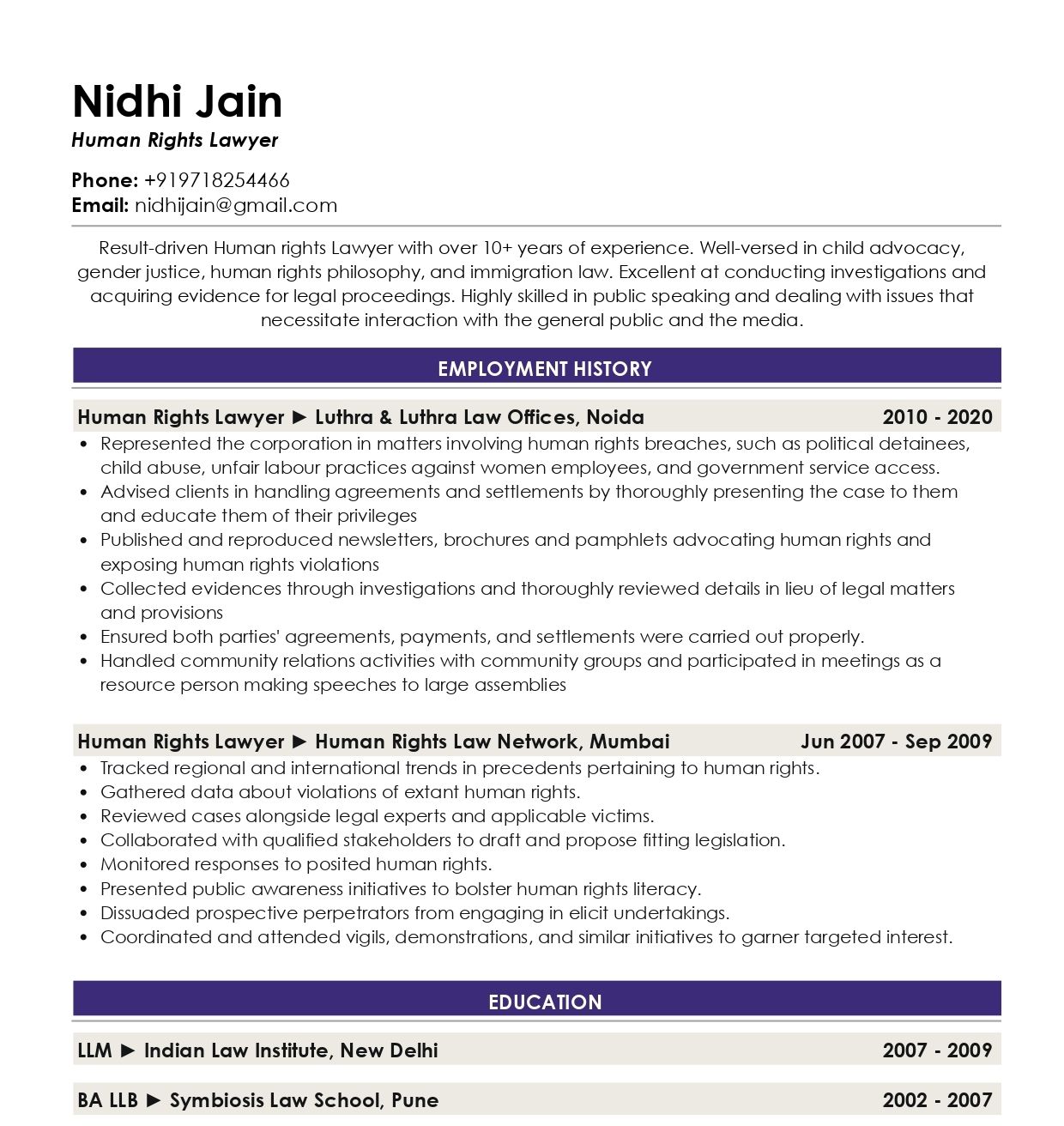
Check full resume here
How to make the best use of your academics
- Use your academics in summary: Your summary is the first thing that the recruiter sees after your name. If you have brag-worthy credentials or academic achievements, use them in your resume summary and give the recruiter a reason to go through the entire resume.
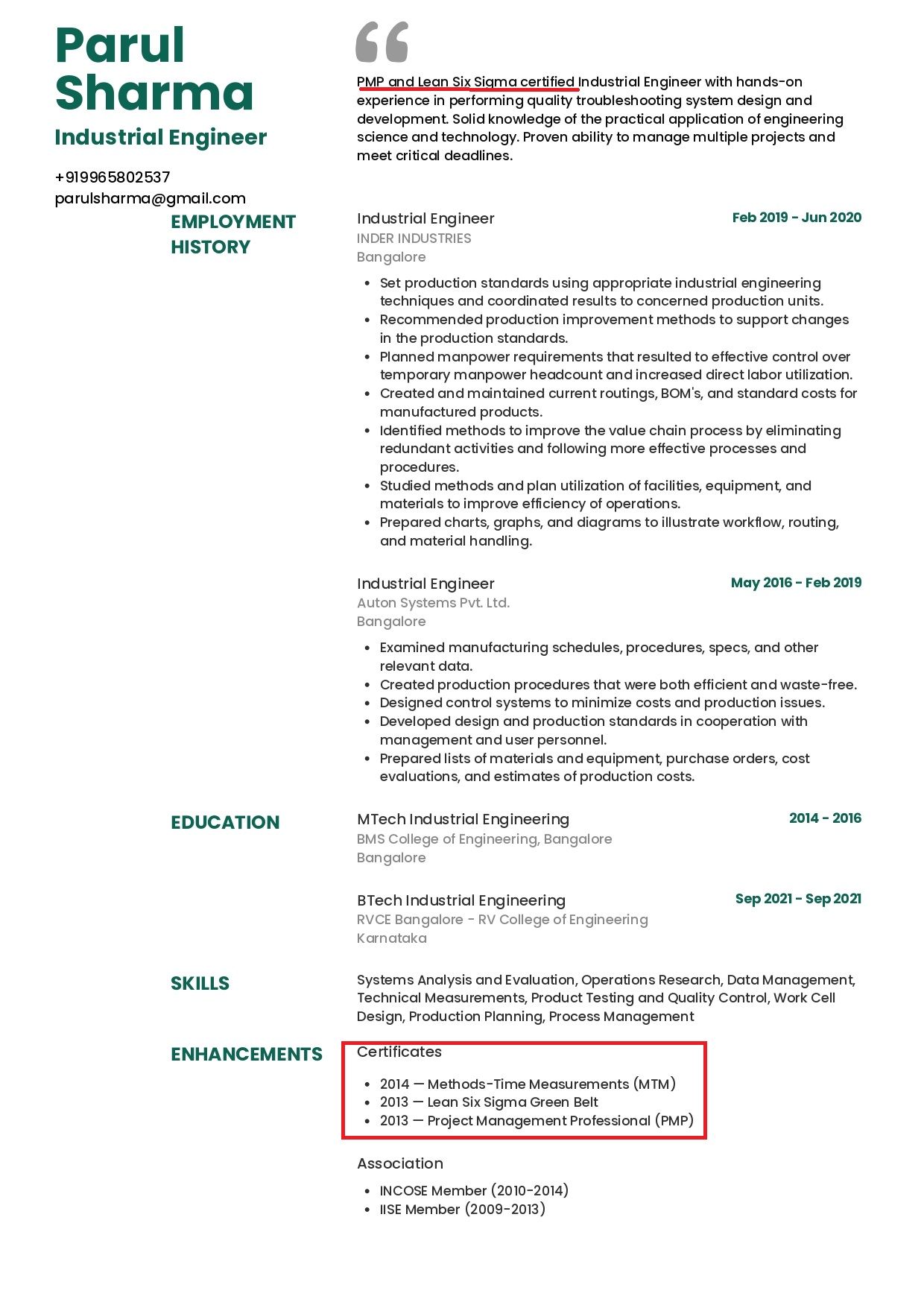
Check full resume here
- Make the best out of course information: Your course information does more than making a structure for the degree. It adds as a repository for keywords. Add them with your degree and show that you know particular topics as they were a part of your curricula.
- Enrich the title of the resume: Your degree and course name can be a part of your resume title, telling the recruiter that you are qualified for the given job role. This small practice instantly distinguishes you from the crowd that does not talk about their education on the top.
Final word
Putting down education and credentials in an organized manner is as important for your resume as any other section. Listing education out is the least time-consuming part of making the entire resume, with some added effort, it can completely make your resume stand out.

